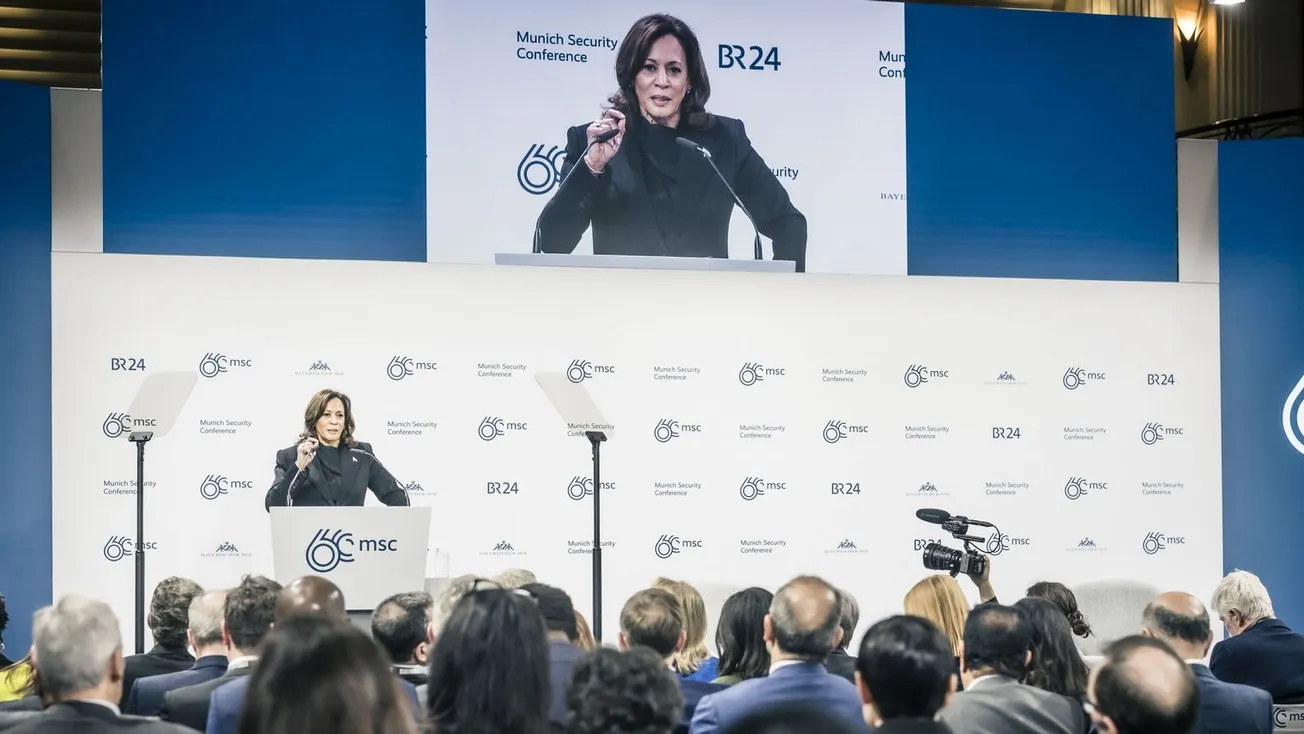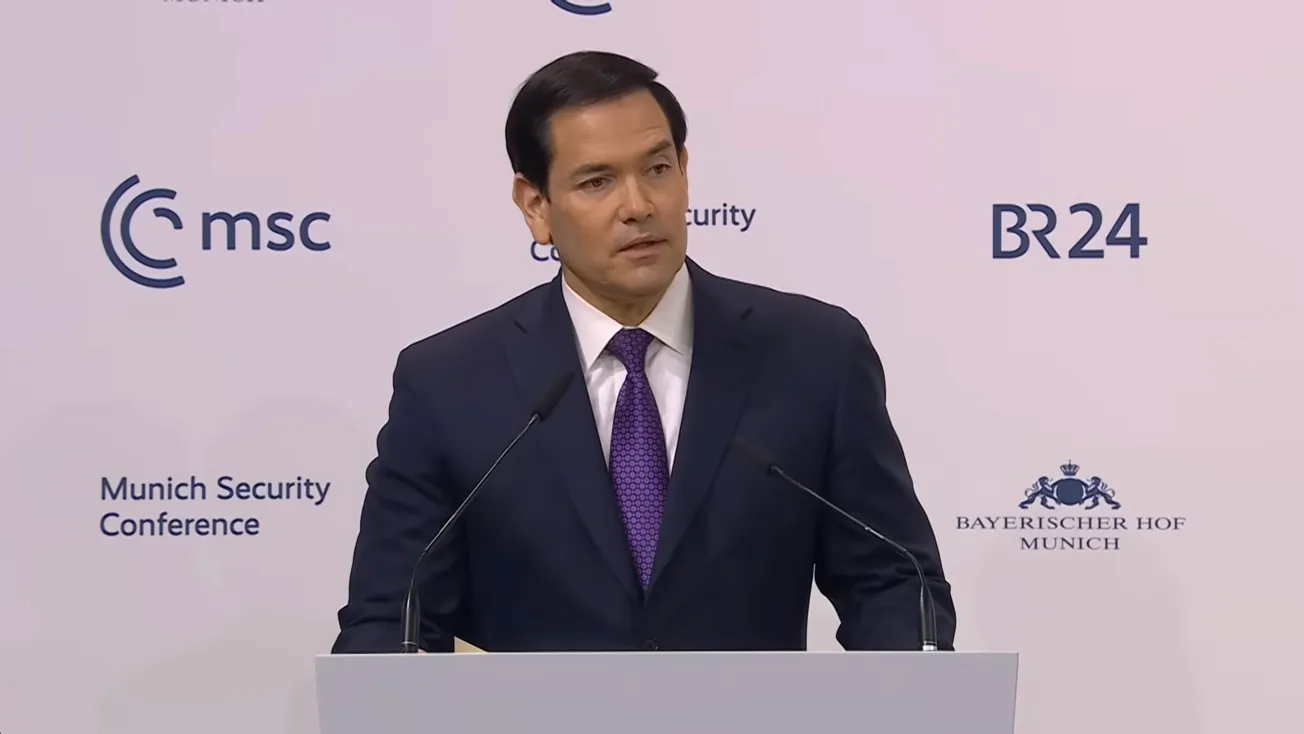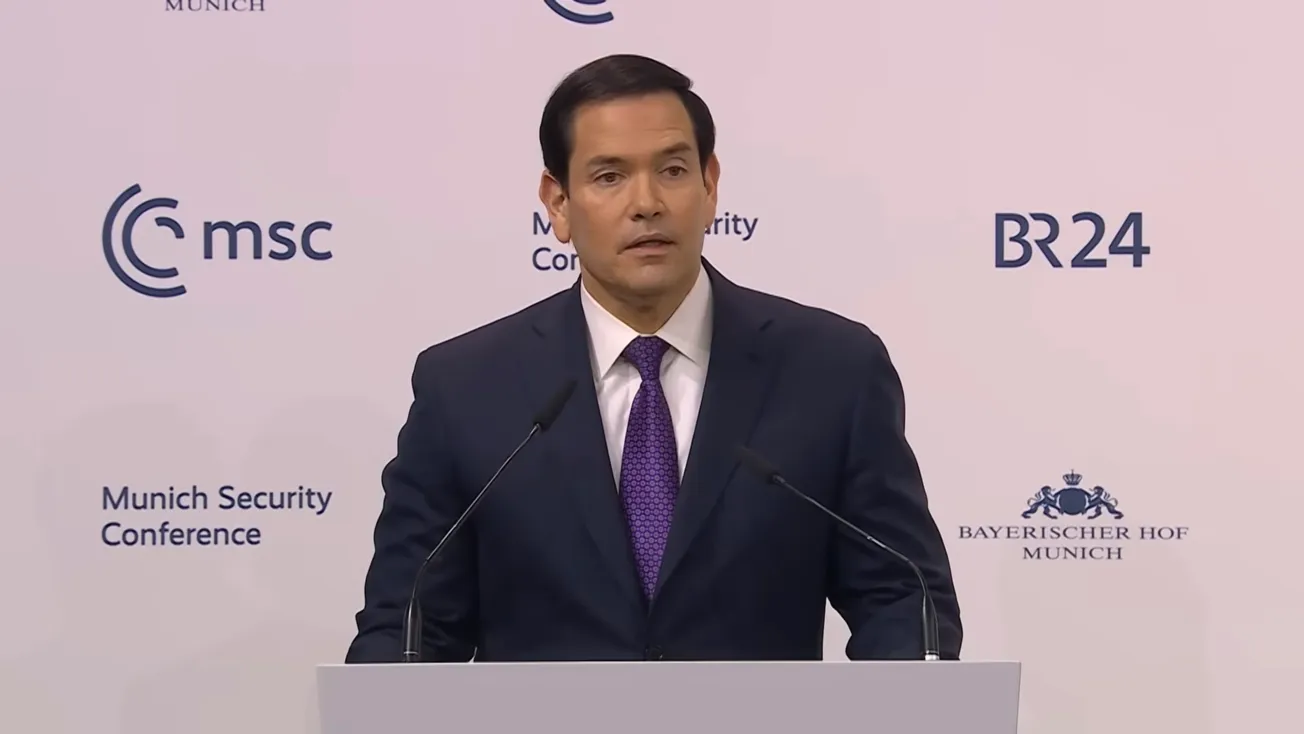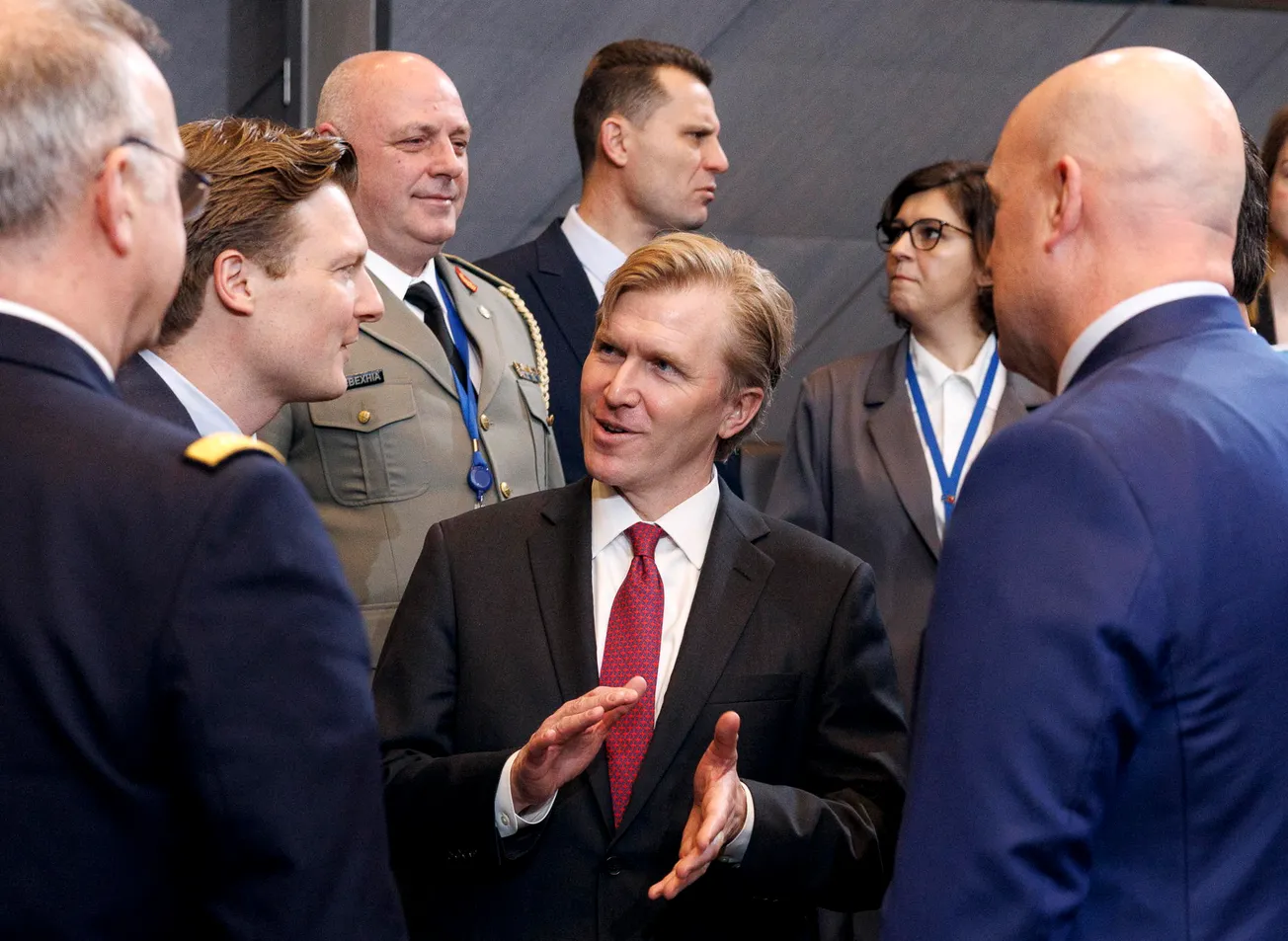The Lead
Munich and Addis Ababa— A Study in Contrasts
by Jason Ross (EIRNS) — Feb. 17, 2024
While the Munich Security Conference included the usual war-mongering crowd, in high dudgeon about Russia’s terrible violations of international law in Ukraine while remaining notably equivocal on Israel’s destruction of Gaza, the African Union meeting of Heads of State and Government in Addis Ababa featured a very different set of voices, focused on collaboration for peace and true development.
NATO leaders did as NATO leaders do: German Chancellor Olaf Scholz called for countries that have committed to weapons deliveries to Ukraine to make good on their promises. U.S. Secretary of State Blinken proclaimed that any ceasefire would only benefit Russia, and warned China not to help Russia, as Washington “would view any provision of military assistance or evading sanctions as a very serious problem for us and for many other countries around the world.” Foreign Minister of Ukraine Dmytro Kuleba shared his delusional vision for a Ukrainian victory: restoration of territorial integrity, compensation for damages, accountability for war crimes, and guarantees that Russia would pose no threat in the future. And U.S. Vice President Kamala Harris met with Ukrainian President Zelenskyy to assure him that the weapons and cash required to maintain the flow of Ukrainians dying in battle would be maintained.
Chinese Foreign Minister Wang Yi was a voice of sanity in Munich. “No matter how the world changes, China is a responsible major country that will keep its major principles and policies consistent and stable,” he said. “In a turbulent world China will be a force for stability.”
“Those who attempt to shut China out in the name of de-risking would be making a historical mistake,” he added. “The world economy is like a big ocean that cannot be cut into isolated lakes. The trend toward economic globalization cannot be reversed. We need to work together to make globalization more universally beneficial and inclusive.”
The visions presented in Addis Ababa contrasted markedly with the overall tenor at Munich.
Chairman of the African Union Commission Moussa Faki Mahamat spoke about the growth of injustice, of hegemonism, of the “might makes right” outlook. “The most flagrant case,” he said, “is that of Gaza, in Palestine.” It is being destroyed, its people “almost exterminated” and deprived of their human rights and dignity. “International rights, international human rights, the rights of man, morality itself” are disregarded and trampled upon. A round of applause from the assembled leaders and guests came when he expressed his happiness with South Africa’s action at the International Court of Justice. The African voice for justice, he said, recalls the words of Nelson Mandela, who said that freedom was incomplete, without the freedom of the Palestinians. The decision by the Court was a victory not only for South Africa, not only for Africa, but for all nations that stand up for the Palestinians.
Host Prime Minister of Ethiopia Dr. Abiy Ahmed spoke next, with a focus on African nations becoming key players in shaping economic history. Africa was the home to mankind, the origin of agriculture, architecture, and medicine. Colonialism held back African development, by repressing education, undermining culture, and economic theft. But the continent is blessed with abundant resources, a youthful population, and great potential. He spoke to the African Union’s “Agenda 2063” plan as the meaningful vision for the future. Interconnectivity will enable greater economic integration and development. Peace and stability are the foundation for development, and it is through collaboration that this will be possible.
Prime Minister of Palestine Mohammad Shtayyeh brought his greetings to Africa from the suffering people of Palestine, of Gaza. Israel does not listen to anyone, not even the United States, he said. He asked for international action to bring an end to the killing. He spoke to the ongoing activity at the International Court of Justice, both on the issue of genocide, and on the issue of settlements as a form of colonialism. Raise your voice against this injustice, and on behalf of the people of Palestine, he urged. Raise your voice to oblige Israel to allow the supply of goods, of health care, of electricity and water. Peace is possible, but it requires the help of the world community.
Security and peace are not achievable by might alone. Friends are not made through force. It is only through a perspective for the future based on the shared human striving for meaning, for growth, to discover and learn, to do good, that peace is possible.
Consider the situation in Israel and Palestine. For half a century, Lyndon LaRouche and his movement have been organizing for a development perspective as a foundation for peace.
“The objective basis for a [Middle East] settlement is the economic-development package we have indicated,” Lyndon LaRouche wrote in 1977. “Any other approach will fail, will be quickly degraded into farce—and probable war. However, it is not mere material advantage in itself which provides the basis for peace. It is the fact that a commitment of the governments to realize high rates of scientific and technological progress fosters humanist outlooks.”
The LaRouche Organization video on the LaRouche “Oasis Plan” presents a powerful image of the future that can be.
And a major in-person event towards realizing a humanist outlook comes Sunday in the form of the Sare for Senate 2024 Presidents Day Conference.
Contents
LaRouche movement
New World Paradigm
- At Munich Security Conference, Wang Yi Points to China as a Center of Stability in a Turbulent World (↓)
- African Union Leaders Opening Ceremony: Peace, Development, and Justice for Palestine (↓)
- Leaders of Mali, Burkina Faso and Niger Meet To Form a Confederation (↓)
- Niger and Morocco Makes Seeking Strategic Partnership (↓)
- ‘For Freedom of Nations International Forum’ Convenes in Moscow (↓)
Strategic War Danger
- Germany and France Sign Military Assistance Agreements with Ukraine (↓)
- Gilbert Doctorow on Navalny's Death: The British Did It (↓)
- In Munich Speech, Blinken Declines to Define Victory In Ukraine (↓)
- Under Pressure from Russia, Ecuador Reneges on Sending Equipment for Ukraine (↓)
- Biden Says He Doesn’t Anticipate Israeli Attack on Rafah (↓)







